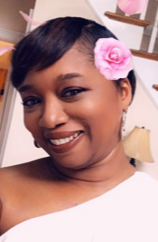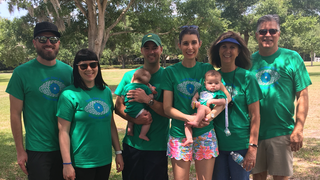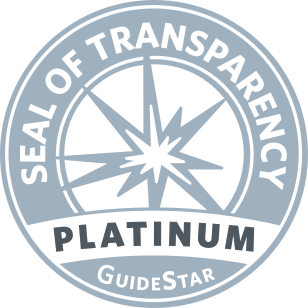Coping with COVID-19: Welcome to the “New Normal”
Beacon Stories
We checked in with a few of the Foundation’s volunteers to get their perspective on these unprecedented times.
The COVID-19 coronavirus pandemic has shut down businesses across the nation until further notice. Restaurants are limited to take-out and delivery only. Grocery stores are running out of essential food and household items as quickly as they get them stocked. Children, teenagers, and college students are studying from home possibly until the end of the school year. People are working from home, some taking care of children at the same time. Everyone has been advised to wear face masks or fabric covering noses and mouths when they go in public (which is to only be for essential work or errands).
This “new normal” is affecting all of us differently and we checked in with a few of the Foundation’s volunteers to get their perspective on these unprecedented times.

Manorthia Hairston
Manorthia Hairston, one of our Atlanta area volunteers, was diagnosed with retinitis pigmentosa (RP) at the age of 21. Manorthia currently works as a Special Projects Administrator at the Center for Disease Control (CDC) in Atlanta. As it is the headquarter office, it is usually bustling with activity. “It has now suddenly come to an abrupt halt amid the COVID-19 outbreak. Social distancing has been enforced and now many of us must work from home,” she says of the sudden change in her work environment.
Manorthia says that the outbreak has been a drastic change of pace for her, but once she got used to being home, life started to feel normal. She recently had eye surgery to remove cataracts and she’s thankful that she was able to have the procedure before everything shutting down. “And now I’m able to adjust to my ‘new eyes’ and live at home comfortably,” she says. She’s welcoming the pause in life the circumstances have given her.
“The outbreak has put a monkey wrench in many of our plans, but I’d rather be safe than sorry,” Manorthia says of her disappointment with events being cancelled or in some way altered. She continues staying positive. “No matter how complicated things are right now I’m going to do my part. For me that means pray, stay calm, and adhere to the measures the CDC has outlined, and offer help to my neighbors, family, and friends.”

Sarah Koehnemann (center right) with her family, several of whom are affected, at a 2019 VisionWalk.
Sarah Koehnemann, an optometrist at Aker Eye Vision Source in Titusville, Florida, has experienced drastic changes in her clinic within the past month. She and the other doctors at the practice are exclusively seeing patients for emergency appointments only. They are also doing a lot of virtual tele-health appointments, which must be video conferences to be considered tele-health for insurance coverage. “It’s amazing what you can see with a patient’s cell phone camera and bright light,” Dr. Koehnemann explains. “It’s still not the same as seeing patients in person, but it’s a good way to triage them to get them the help they need without exposure to other patients. We are also processing glasses and contacts orders with curbside pick-up and shipping to patients’ homes. This is an opportunity for many of us to learn the benefits of technology for healthcare needs.”
Dr. Koehnemann is also an active volunteer leader in the Foundation’s Professional Outreach efforts. She is passionate about the Foundation’s mission because she comes from a family with dominant RP. Seven people in her family have been diagnosed with the disease, the youngest being eight years old who was recently diagnosed through genetic testing. He has not shown symptoms yet. Dr. Koehnemann is the only adult in her family who doesn’t have the disease. Her family was her sole inspiration to go into optometry and for pursing a specialty in low-vision care. She says that her affected family members are doing well through all of this. “It’s been neat to hear my mom’s perspective on things right now since she’s used to staying home and getting things delivered since she stopped driving many years ago.” We can all relate to feeling a little isolated right now.
Lora and Albert Swatko are brother and sister, and the only ones in their large family affected with RP. Al has gradually lost all his vision since his diagnosis in 1990. He says he is not experiencing too much disruption in his daily life. He is still going to his job at Coast Tire & Auto, and people are being respectful of social distancing. Al’s “new normal” is very much his regular normal. His siblings help him out with getting food through Instacart, and his coworkers offer rides to and from work. His positive and upbeat personality is undoubtedly helping him get through this, and we can all benefit from adopting his outlook on life, especially during these rough times. “It’ll change, we will get through this, it’s just a matter of when. Be patient,” he says. “It is what it is.” That was his favorite saying, even before Coronavirus. “Eventually we will get on the other side of this, we will get back to some kind of normalcy, and life will go on.”
.png)
Clockwise from left: Lora Swatko, Al Swatko with family.
Lora, who received her diagnosis after Al but still has a fair amount of her central vision, is a little bit more anxious during these uncertain times than her brother. The simple act of going to the grocery store is more stressful now. “Even though I had my white cane, people were still bumping into me,” Lora says of a recent grocery store trip with her husband. She could also tell people were a little more nervous about helping her find items she was looking for.
Lora stays home with her family and does a lot of volunteer work. Not just for the Foundation, but also with her daughter’s Girl Scout troop. She says she is nervous about fundraising in the future but remains hopeful. Lora agreed with Al that her daily life hasn’t been affected too much, but it has put things in perspective for her. She and Al are lucky to have a great support system — a family who help them with necessities. “But, think about the people who don’t have that support system. If they have any sort of disability, not just vision loss. Think about if someone doesn’t have a smart phone.”
Lora reminds us to be thankful for what we have and to also reach out to a neighbor or friend and offer help if they are in need. She also says that this has been a wakeup call for her. “I’ve realized there are things I want to do when this is over, vision or no vision. There are still things in life I want to accomplish.” She has found a new source of motivation during these hard times.
“The new normal” has a different meaning for all of us but we can still try our best to be kind to each other and ourselves. Be thankful for what we have and try to keep a positive attitude. Remember to reach out and check in on friends, family, and neighbors to offer help if you’re able (while staying six feet away, of course!). This too shall pass, and when it does, we will all be stronger together.




